The Highlands of Papua New Guinea; the country’s rugged interior is one of the world’s remaining frontiers. It’s hard to believe a region so close to New Zealand could be so wild, with such a wonderful blend of beauty, curiosity, and the unknown.
This immense forest, which is one of the largest outsides of the Amazon, is home to tribes who maintain an ancient way of life with little or no interaction with the outside world. We’re talking about people who have never heard of electricity, automobiles, the Internet, fast food, or anything else associated with modern life!
The Asaro Mud Men
While most of the island’s 150 tribes wear colorful clothing, the Asaro Mud Men are the least colorful. When they appear, they are covered in white mud from head to toe, walking glacially slowly, every tendon of their whippet-like bodies taut as bowstrings, continuously glancing left, right, and behind them, ready for anything. Some people carry arrows in their bows, while others carry spears and clubs. Some people have red-painted bamboo on their fingers that stretch several inches and are filed to a razor point, giving them the appearance of huge claws. There is no one talking, not even those who are watching them.
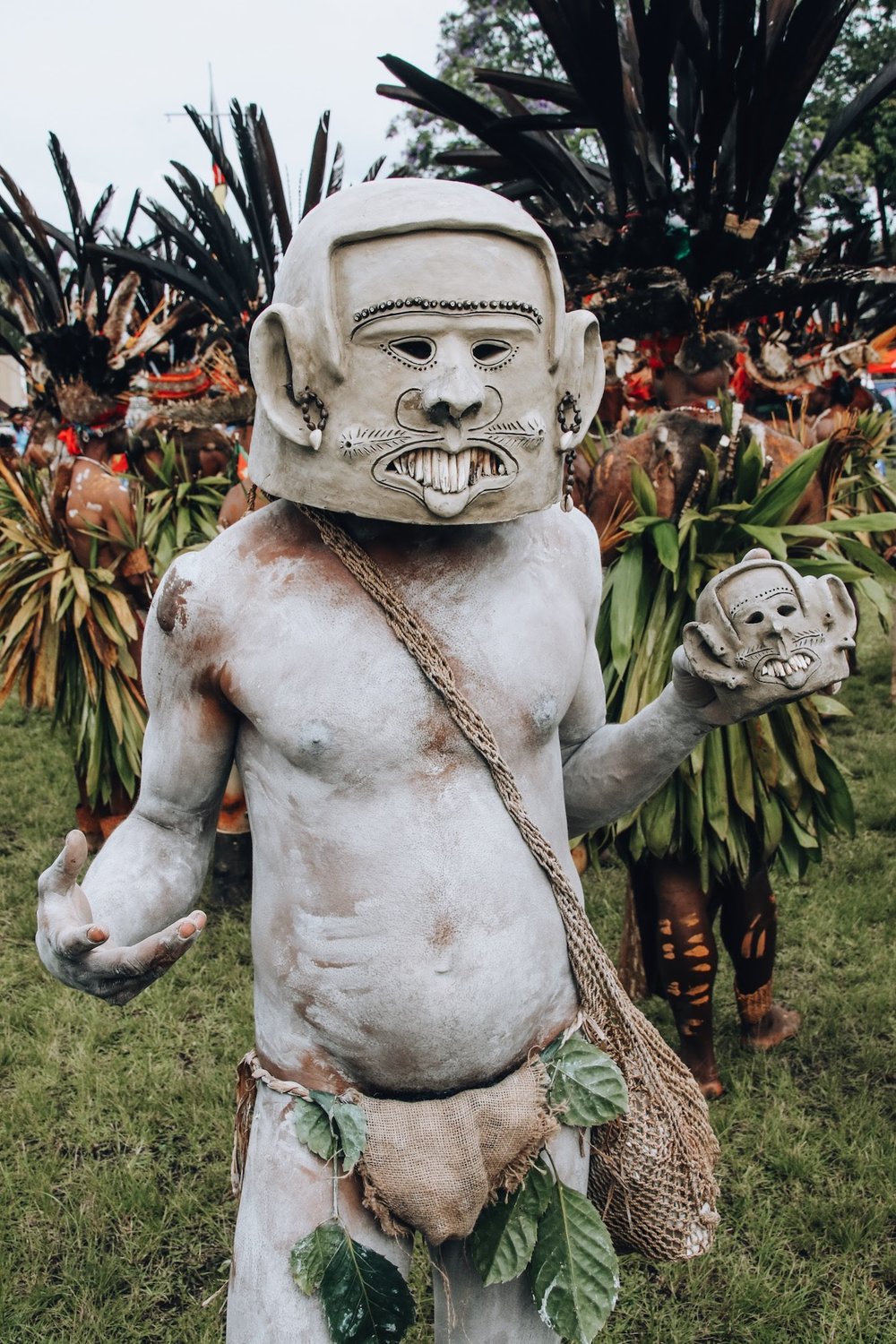
The Asaro, also known as the Holosa (which means “ghosts”), is one of several tribes in Papua New Guinea’s Highlands who continue to live a traditional lifestyle with little contact with the outside world. The Asaro Mudmen, however, is one of the most well-known.
The Asaro Mudmen believe that if they can create dread with their terrifying masks, they will not have to go to war. To escape the battle, they wore masks in this manner. There are numerous historical theories. With no documented history, it’s impossible to say when the Asaro started manufacturing masks, however, it’s thought to have been a four-generation tradition.
The Mask
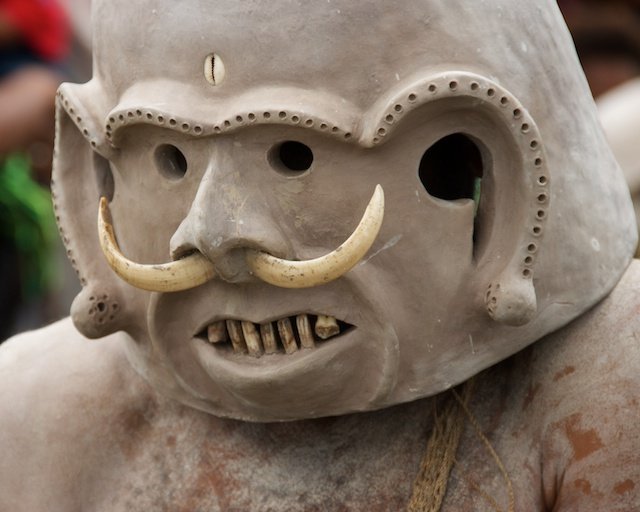
Klinit Berry, a former administrator at the University of Goroka in Papua New Guinea (PNG) told the media a story about the origin of the mask. One of the Asaro was supposed to have married, and everyone dressed up in their traditional garb. But one man lacked a costume, so he took an old bilum (a string bag), cut two holes for his eyes, soaked it in mud, and covered his skin in the muck. However, when he came to the wedding, everyone else mistook him for a ghost, and instead of celebrating, they fled.
The man realized he could use his outfit to win along with tribal conflict with a neighboring tribe after seeing the reaction of the attendees at the wedding. He asked his brother and buddies to put on masks and mud to conceal themselves. So they smeared themselves with mud and attacked the tribe, and that’s how they triumphed. The enemies mistook them for ghosts and fled without firing a single arrow.
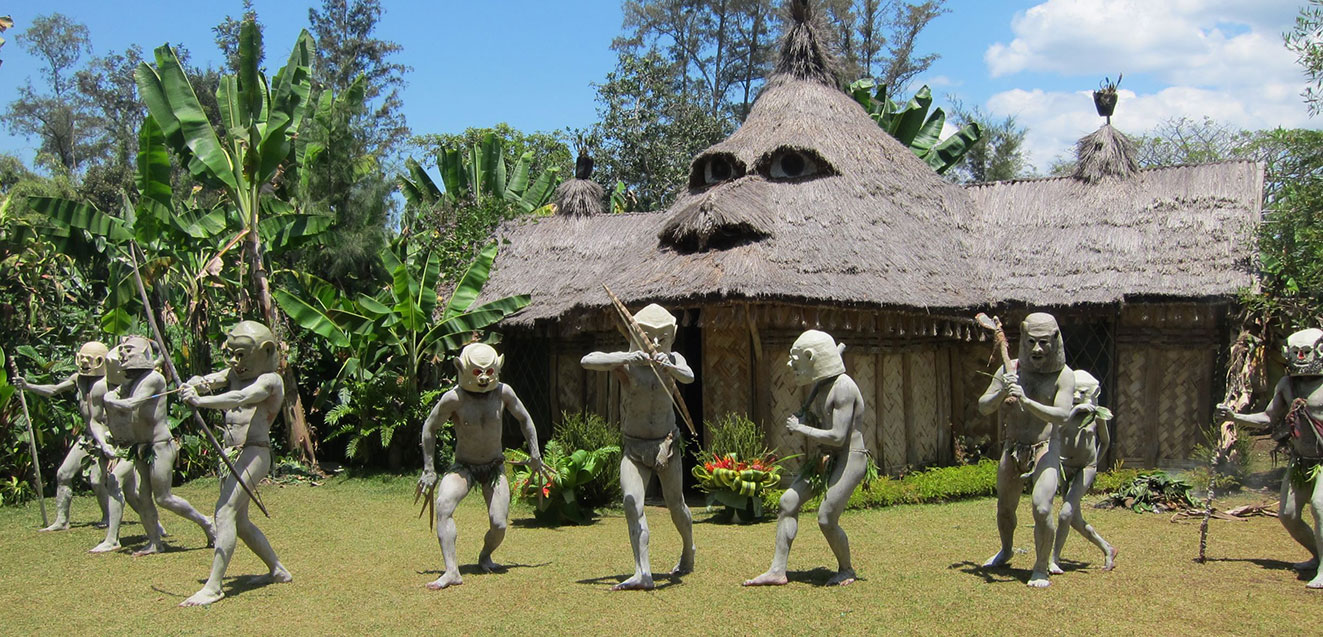
Another theory suggested that Asaro had been persecuted by a stronger enemy tribe for several generations. They were on the verge of losing the war. An elderly man from their community had a dream at that time in which he saw a terrible grey spirit. He awoke the next morning with the notion of creating a mud mask that resembled the scene from his vision. As soon as they were spotted, the adversaries fled in terror, and Asaro was saved. Since the Asaro Mudmen figured out how to exploit the power of human imagination and the fear of the unknown to stay alive.
Most tribes smear mud or paint when going to war but the Asaro tribe is unique because they use mud to avoid war. Their warrior skill has always been exaggerated, and while literature and legend have bestowed upon them exceptional martial abilities, their only actual advantage in battle is their terrifying visage. You don’t need to go to war if you can create terror.
The Tribal Dance
The Asaro Mud Men dance is based on a fascinating ancestral story of people from a distant community in the province’s Eastern Highlands. The story follows a group of tribesmen who return home from a hunt to discover their dwellings trashed and their wives kidnapped and brought to a nearby community.
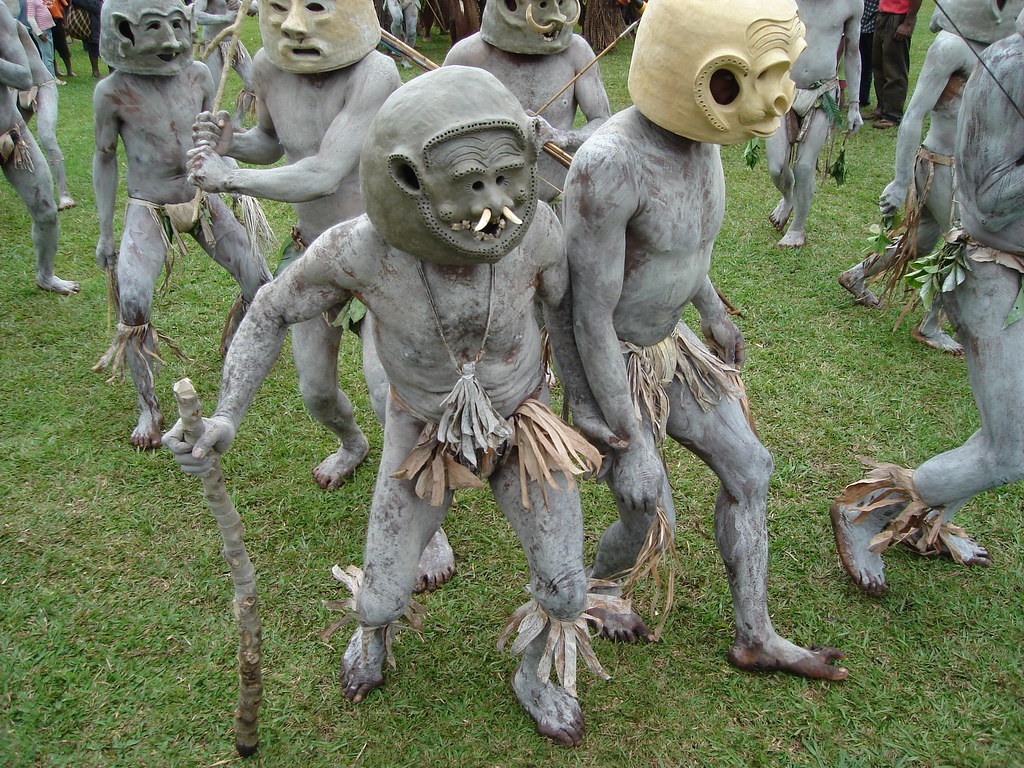
Their adversaries were terrifying individuals. Nonetheless, the men were eager to save their ladies, and they devised a plan to strike early in the morning. Darkness approached on the route to the nearby village. They were perplexed and ended up in a muddy pool of water after taking the wrong path. They were covered in thick grey sludge when they got to their feet. Their foes were terrified when they saw their slow, disoriented stride, thinking they were some kind of ghost or demonic spirit. From afar, the mud men ordered their lady folk to run and flee in their tongue.
When this dance was first performed, many viewers fled as they became frightened of the dancers and their outfits. But now, Asaro mud men are the main tourist attraction for Papua New Guinea, drawing almost thousands of visitors from all over the world.
Sources: Australian Museum, Geographic Expedition, Stuff, Face To Face Africa, EMTV, BBC, Georgi Bonev

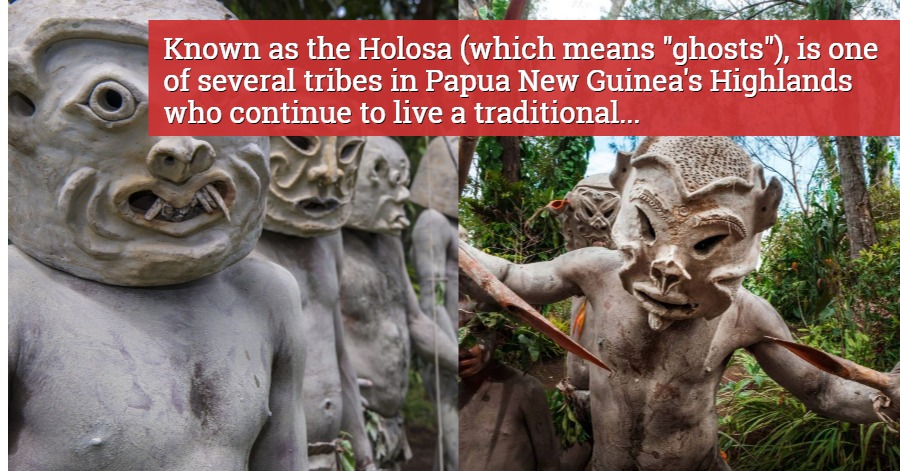


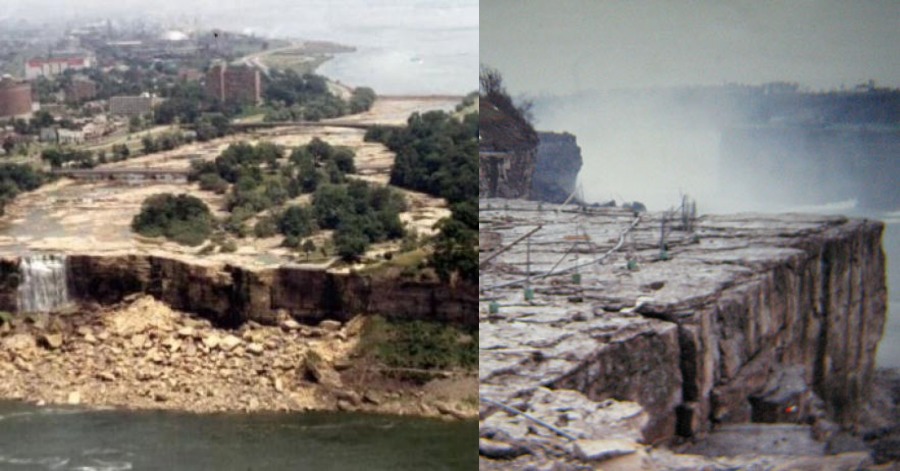




Leave a Comment